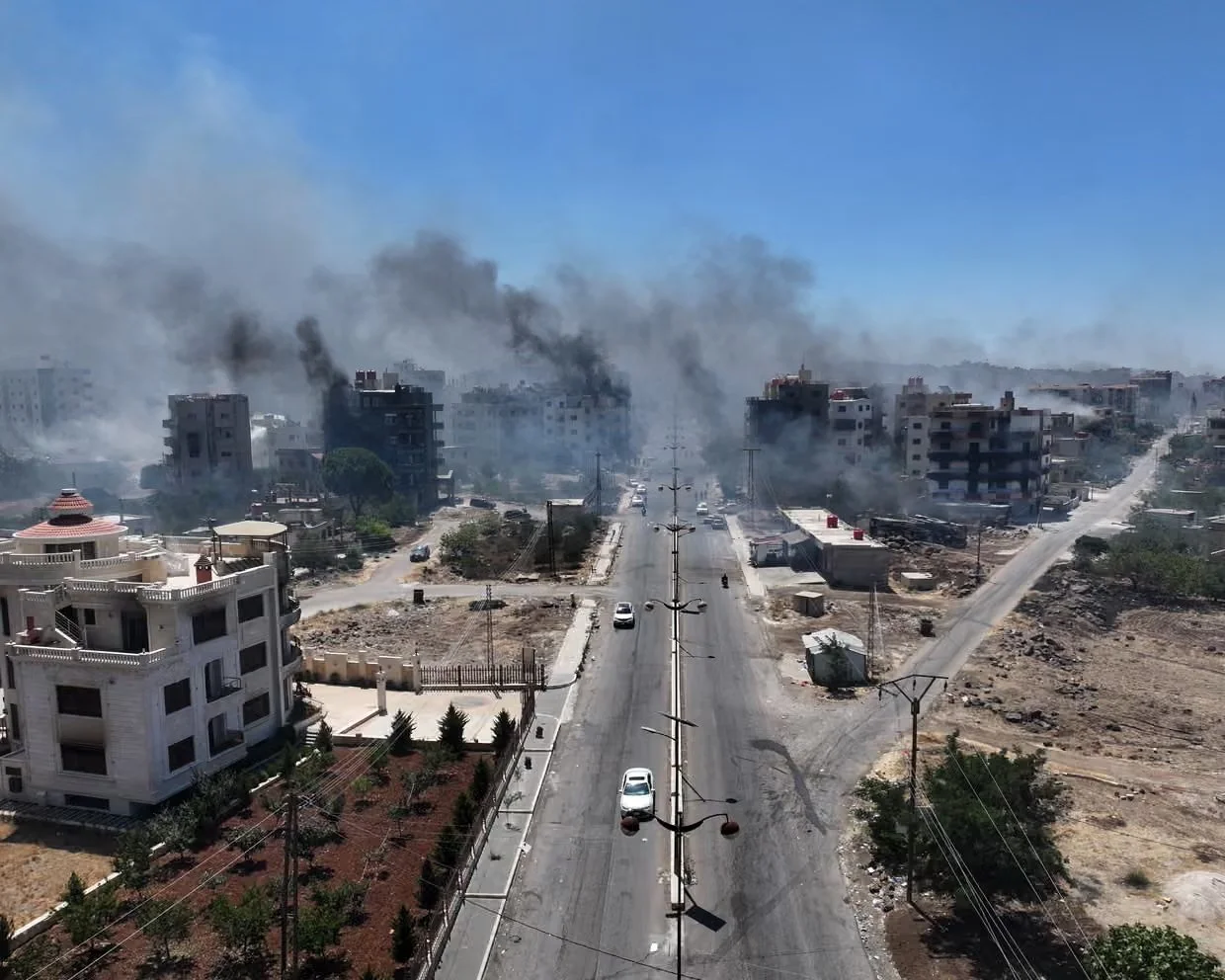Syria Monthly Report
July 2025
Executive summary
International engagement
July was dominated by high-stakes regional maneuvering following a misreading of backchannel contacts between Syria and Israel. Talks in Baku, mediated by regional actors, were intended to address border stability. However, Damascus interpreted the exchanges as tacit approval to reassert control over southern governorates, triggering deployments to As-Sweida amid local clashes. Israel responded with targeted airstrikes on Syrian positions, which Damascus framed as violations of sovereignty, rallying domestic support and leveraging public rejection of normalization. While direct negotiations remain preliminary and focused on de-escalation, these events underscore a fluid and indirect engagement dynamic marked by strategic signaling rather than imminent reconciliation.
Security, governance, and political stability
The mid-July Druze and Bedouin clashes in As-Sweida were the most violent in years, causing mass displacement, infrastructure damage, and a breakdown in local-state relations. Ceasefire attempts mediated by the US, Jordan, and Türkiye had mixed success, with the eventual truce remaining fragile. The fighting fractured relations between the government and Druze factions, emboldened tribal actors, and deepened sectarian divides. In the northeast, SDF and Damascus reintegration talks advanced under international pressure, with structural progress offset by disputes over disarmament, constitutional guarantees, and operational control. The partial dissolution of the PKK in Türkiye added new momentum to reintegration but also heightened sensitivities over future security arrangements.
Economic stability
Economic policymaking centered on high-profile reforms and investment vehicles. The reinstatement of thousands of Assad-era dismissed public sector employees aimed to signal reconciliation and boost household incomes but risks reviving an inefficient wage-heavy model without parallel reform. The Central Bank unveiled a national housing loan program to address acute shortages, though financing constraints and equity concerns threaten its viability. Decree No. 113 established the Syrian Sovereign Fund to channel public assets into development, sparking debate over transparency and executive control. A sweeping income tax overhaul set for 2026 raised thresholds to ease burdens on low-income earners while seeking to modernize collection systems, a change welcomed by households but with potential fiscal trade-offs.
Infrastructure and Services
July marked a landmark in Gulf engagement, with Saudi Arabia and the UAE announcing 7.2 billion USD in infrastructure, real estate, and logistics investments, including a Damascus metro system, new cement factories, and a major agreement to modernize the Port of Tartous. These projects could deliver significant economic spillovers and signal Syria’s re-entry into regional trade networks, but many agreements remain preliminary and contingent on legal, regulatory, and political stability.
Humanitarian Need
Beyond the As-Sweida humanitarian emergency, northern Lattakia faced its worst wildfires in years, destroying over 16,000 hectares of forest and agricultural land, displacing thousands, and causing severe biodiversity loss. Regional cooperation, notably from Türkiye, Jordan, and Iraq, helped contain the fires, but environmental damage will have long-term livelihood and ecosystem impacts.


